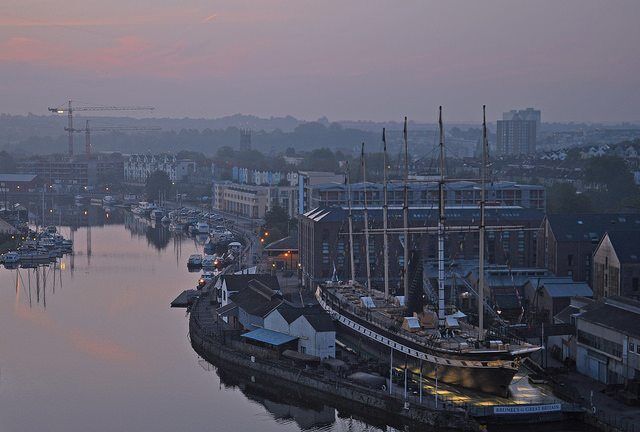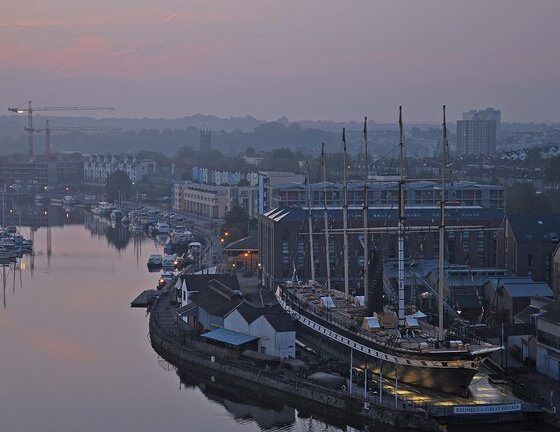

Awards
Eleven Energy Projects Around Bristol Offered Funding To Help Local Communities
Eleven Bristol groups will receive a total of £58,132 to carry out a range of local community energy projects
The grants are being awarded by Bristol City Council through its Bristol Community Energy Fund – an initiative which encourages local solutions to community-specific energy challenges.
The successful projects were picked from 18 submissions by a judging panel comprising Bristol City Council representatives, community leaders, local energy partners such as Bristol Energy Network, Age UK Bristol, Bristol Disability Equality Forum, Centre for Sustainable Energy, UWE, Quartet Community Foundation and local business representatives.
Projects were chosen on the basis of their potential to support local people to:
• Reduce energy use
• Move towards cleaner and renewable sources of energy
• Take measures that can help meet their energy needs affordably.
The grant programme is currently targeted at not-for-profit organisations in the Bristol area. Community groups, charities and community interest companies from across Bristol are encouraged to apply to broaden the reach of energy projects to new communities and boost Bristol’s energy efficiency.
This new round of grants builds on the success of Bristol Community Energy Fund’s first round of funding for 12 local projects earlier this year. Many of these original projects are now well underway with St Werburghs Community Farm and the Bristol Playbus projects having been completed early.
As with the previous round of grant funding, the judging panel prioritised submissions that looked to enable renewable energy generation, reduce fuel poverty and change behaviour – all with the intention of making Bristol more sustainable and working towards the city’s target to become carbon neutral by 2050.
One of the first projects to receive funding during this round is the ‘TWO’s Project’ being led by Easton Energy Group, which will look at setting up a micro-grid across two streets in Easton by connecting Solar PV with battery storage installed on residents’ houses. The project has the potential to directly reduce carbon and create a model that could be replicated across the rest of the city.
Yael Ben-Gigi, of Easton Energy Group, said: “It’s amazing that the council is able to support an innovative project like this through the Bristol Community Energy Fund. We have really high hopes for the project’s ability to provide cheaper, cleaner energy to people while offering opportunities to engage with renewable energy generation on a very local scale. We believe that we’ll be able to build a best-practice model that can be used right across the UK.”
Other projects which have been offered funding include door-to-door energy awareness sessions being led by Talking Money and the installation of numerous energy-efficiency measures such as insulation for Zion Bristol.
A map of the community energy projects supported by the council, including newly funded schemes can be found on the Bristol Community Energy Fund website www.bristolcommunityenergy.co.uk.
Marvin Rees, Mayor of Bristol, said: “I’m delighted that we’re able to support such a broad range of energy projects in some extremely diverse areas of the city. These are difficult times. Local authorities face a future of austerity and budget cuts but still have ambitious carbon targets to meet. Community energy can help address both of these challenges, while supporting our communities to take ownership of energy.
“We understand that environmental and social justice are inseparable. If we are to enjoy an equitable and prosperous future, we must decarbonise by 2050 and to do this, we need to get the whole city involved through schemes like the community energy fund.
“The groups least engaged with energy issues have tended to be those most prone to fuel poverty, least likely to access information that might encourage them to undertake energy efficiency measures or to benefit from generating their own energy.
“By supporting projects which help address the specific needs of communities, we can begin to bridge that gap, helping residents to gain from a more sustainable relationship with energy. It’s also reassuring to see different groups and communities submitting applications – genuine proof of our efforts to broaden out the energy conversation city-wide.”
The fund was launched in November 2015 with seed money from the Department of Energy and Climate Change (now Department for Business, Energy and Industrial Strategy) to help the city build on its community energy experience by developing a national best practice model, including an online platform for sharing tools and techniques with others.
There were calls for a first round of project proposals in February 2016, followed by this latest round in June. Twelve projects received a total of more than £53,000 in the first round of funding.
One of the next steps for the council will be to seek additional contributions from investors and the business community to grow the funding available for local projects.
In the near future, the council will also be releasing a loan fund with low cost finance to support the development of larger community-owned energy projects and, in the long-term, to create a revolving fund structure.
The council’s intention is to support groups to grow and become self-sustaining, as well as bringing down the burden of accessing resources for building improvements.
Community groups, individuals and businesses interested in getting involved in community energy projects are encouraged to get in touch via www.bristolcommunityenergy.co.uk.
Bristol City Council will be announcing more rounds of grant and loan funding in the coming months and inviting new and past applicants to submit applications.


 Environment12 months ago
Environment12 months agoAre Polymer Banknotes: an Eco-Friendly Trend or a Groundswell?

 Features11 months ago
Features11 months agoEco-Friendly Cryptocurrencies: Sustainable Investment Choices

 Features12 months ago
Features12 months agoEco-Friendly Crypto Traders Must Find the Right Exchange

 Energy11 months ago
Energy11 months agoThe Growing Role of Solar Panels in Ireland’s Energy Future



























